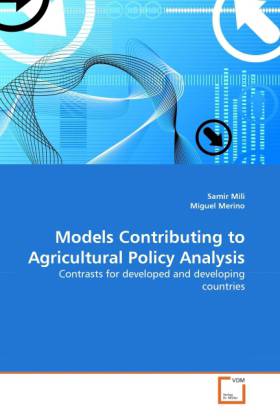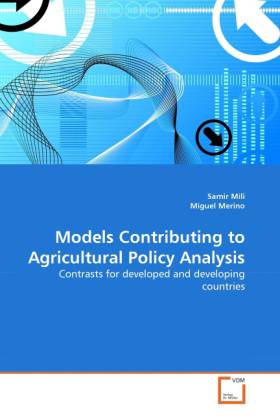
Bedankt voor het vertrouwen het afgelopen jaar! Om jou te bedanken bieden we GRATIS verzending (in België) aan op alles gedurende de hele maand januari.
- Afhalen na 1 uur in een winkel met voorraad
- In januari gratis thuislevering in België
- Ruim aanbod met 7 miljoen producten
Bedankt voor het vertrouwen het afgelopen jaar! Om jou te bedanken bieden we GRATIS verzending (in België) aan op alles gedurende de hele maand januari.
- Afhalen na 1 uur in een winkel met voorraad
- In januari gratis thuislevering in België
- Ruim aanbod met 7 miljoen producten
Zoeken
Models Contributing to Agricultural Policy Analysis
Contrasts for developed and developing countries
Samir Mili, Miguel Merino
Paperback | Engels
€ 70,45
+ 140 punten
Omschrijving
Quantitative models are necessary tools to represent the extremely complex interrelationships between agricultural activities and their environmental and socioeconomic consequences. It is a well-established fact that reactions to policy intervention on bio-natural and socioeconomic structures are rarely satisfactorily explainable or predictable on the basis of simple intellectual constructions. This contribution provides a review and assessment of different types of applied modeling allowing for informed discussion. A global framework is drawn up for market structures and policy measures in developed and developing countries. Salient policy issues on agricultural trade and emerging challenges including environmental sustainability and poverty alleviation are discussed as an introduction to the core survey of the quantitative tools currently used in tackling these issues.
Specificaties
Betrokkenen
- Auteur(s):
- Uitgeverij:
Inhoud
- Aantal bladzijden:
- 88
- Taal:
- Engels
Eigenschappen
- Productcode (EAN):
- 9783639378627
- Verschijningsdatum:
- 26/08/2011
- Uitvoering:
- Paperback
- Afmetingen:
- 150 mm x 220 mm
- Gewicht:
- 134 g

Alleen bij Standaard Boekhandel
+ 140 punten op je klantenkaart van Standaard Boekhandel
Beoordelingen
We publiceren alleen reviews die voldoen aan de voorwaarden voor reviews. Bekijk onze voorwaarden voor reviews.









